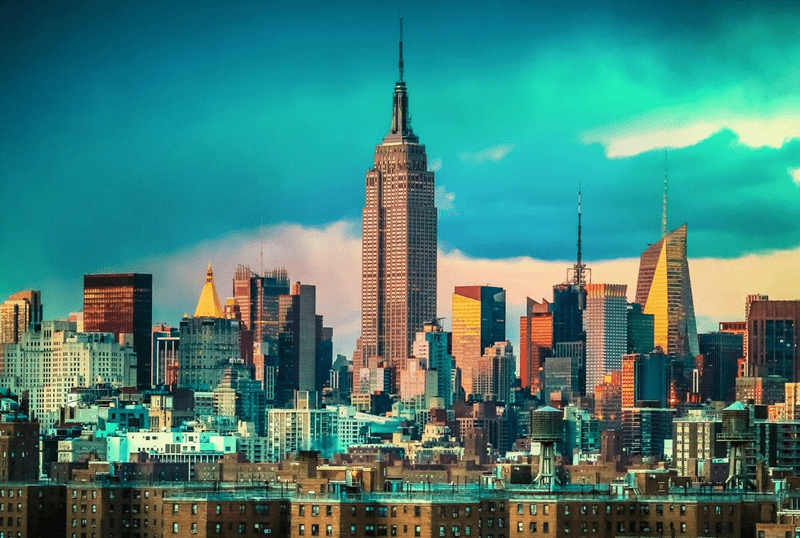For patients across the country, it's getting easier and easier to access medical marijuana. Patients in New York, however, aren't having the same luck. According to an investigation conducted by The Journal News, New York State agencies have mishandled dozens of regulations that control how doctors grant medical marijuana to patients. These mistakes have led to failed dispensary openings, inaccurate information and conflicts throughout the entire New York medical system, mistakes which I believe can only be counteracted by the implementation of a more cohesive Telehealth and medical marijuana strategy. Here's what consumers need to know.
New York's Medical Marijuana Laws
While New York legalized medical marijuana in 2014, the state's laws are currently incredibly restrictive. For example, there are roughly 200,000 patients in the state waiting to be certified for medical marijuana, but only 1,565 have achieved certification. Additionally, out of the 90,000 doctors in the state, only 455 have registered for the medical marijuana program. To make matters worse, the state refuses to release the names of these participating doctors in any publicly accessible format. This makes it incredibly difficult for patients to access medical marijuana care in New York.
The reason that doctors aren't registering doesn't come down to a disinterest in doing so, however - it's the result of increasing concerns about the potential for federal legal ramifications. Because New York's medical marijuana laws are still residing in a legal gray area, many doctors refuse to certify patients in order to protect themselves and their practices. Additionally, doctors who want to provide medical marijuana are required to carry additional malpractice insurance, which is a deterrent for many. As well as this the doctors are required to take an educational course as well as pay a "enrollment fee" to participate in the program. Many doctors also worry that participating in the medical marijuana program would impede their ability to prescribe other drugs, thus cutting down on their capacity to treat other patients adequately.
And their fears aren't entirely unfounded. Even Kirsten Gillibrand, New York's Democratic senator, states that doctors who prescribe marijuana in New York are "putting themselves at risk." This is because New York doctors are required by the Health Department to provide dosing instructions for the medical marijuana patients they work with, a requirement that is incredibly rare. In other states where medical marijuana is legal, dosing recommendations are left up to medical marijuana dispensaries rather than doctors. Because of this, it's obvious that New York's odd requirements place doctors at risk of facing federal penalties if they get the dosing wrong on a medical marijuana product.
While New York currently only allows non-smokable types of cannabis, such as oils and edibles, for use in therapy, the issues surrounding the certification of patients in the state remains and consumers are suffering as a result.
The Effect NY's Restrictive Laws Have on Patients
While New York lawmakers continue to fight about how, when and where medical marijuana will be prescribed, a few pioneering clinics are attempting to cater to the needs of the state's consumers. One clinic located outside of Buffalo has ten participating doctors and receives more than 100 phone calls each day from patients attempting to access medical marijuana.
The clinic's lead physician, Dr. Laszlo Mechtler, realizes that the small number of providers and the ongoing legal ambiguity is only hurting patients. He says, "While we wait for the politicians to make decisions, what do we do for our suffering patients? I can't wait for a 12-year-old that has less than four months to live… That is my duty, to relieve that suffering." Dr. Mechtler isn't alone in these sentiments. Thousands of patients across the state of New York want desperately to access medical marijuana, but can't because of the state's restrictive laws.
A Better Way: Why NY Should be Following CA's Model
The fact that patients in New York are having such a difficult time accessing care is especially tragic when you take into account how effective medical marijuana can be as a treatment modality. Here at HelloMD, my team recently conducted a patient response survey. The survey collected answers from 1,400 medical marijuana consumers in a variety of states. As far as I can tell, this survey is currently the most comprehensive of its kind.
The results of the study go to show exactly how firmly medical marijuana patients believe in the effectiveness and importance of cannabis as a treatment option: 84 percent of respondents reported that cannabis helps them cope with their symptoms, while 66 percent reported using the herb as their primary treatment modality. 64 percent of respondents reported consuming marijuana daily, and no respondents reported negative consequences of marijuana use. This survey is proof of the importance and effectiveness of medical marijuana treatments and should be taken into account as states like New York evaluate their medical marijuana policies.
Conclusion
While access to medical marijuana has improved around the country, it's clear to me that residents of New York state are still struggling to get the care they need. Thanks to low numbers of participating physicians, no way for the public to access lists of approved doctors and incredibly slow and restrictive patient certification processes, New York is lagging behind many other states in terms of their ability to offer consumers unimpeded access to medical marijuana.
Unfortunately, the only people suffering as a result of these failings are the consumers themselves. While the situation in New York looks bleak currently, I believe firmly that access to care would improve greatly if the state would follow the leads of states like California, where medical marijuana access is a readily available to all patients. I believe that only when patients can access the cannabis-focused care they need will New York begin to truly serve its residents.
